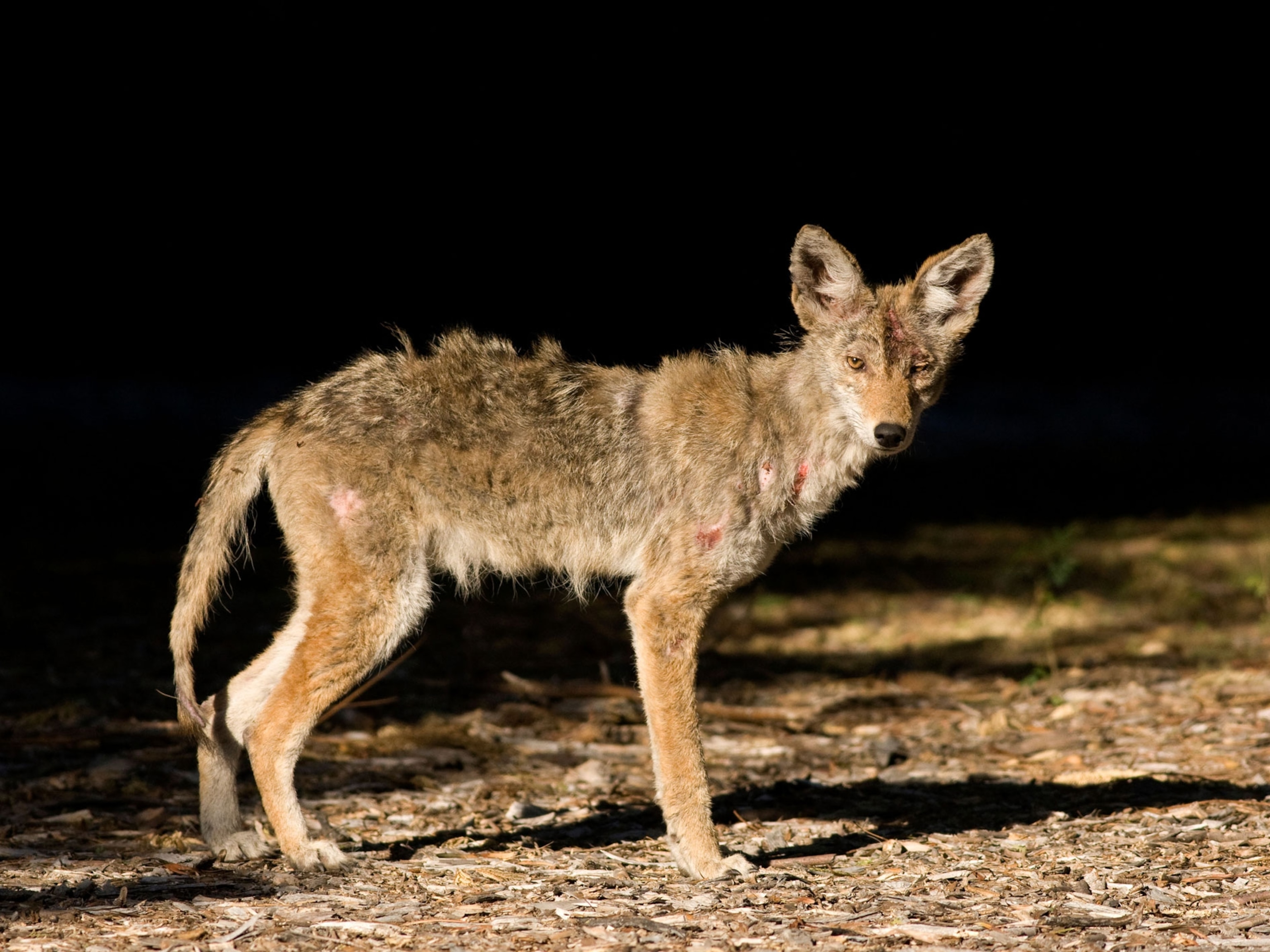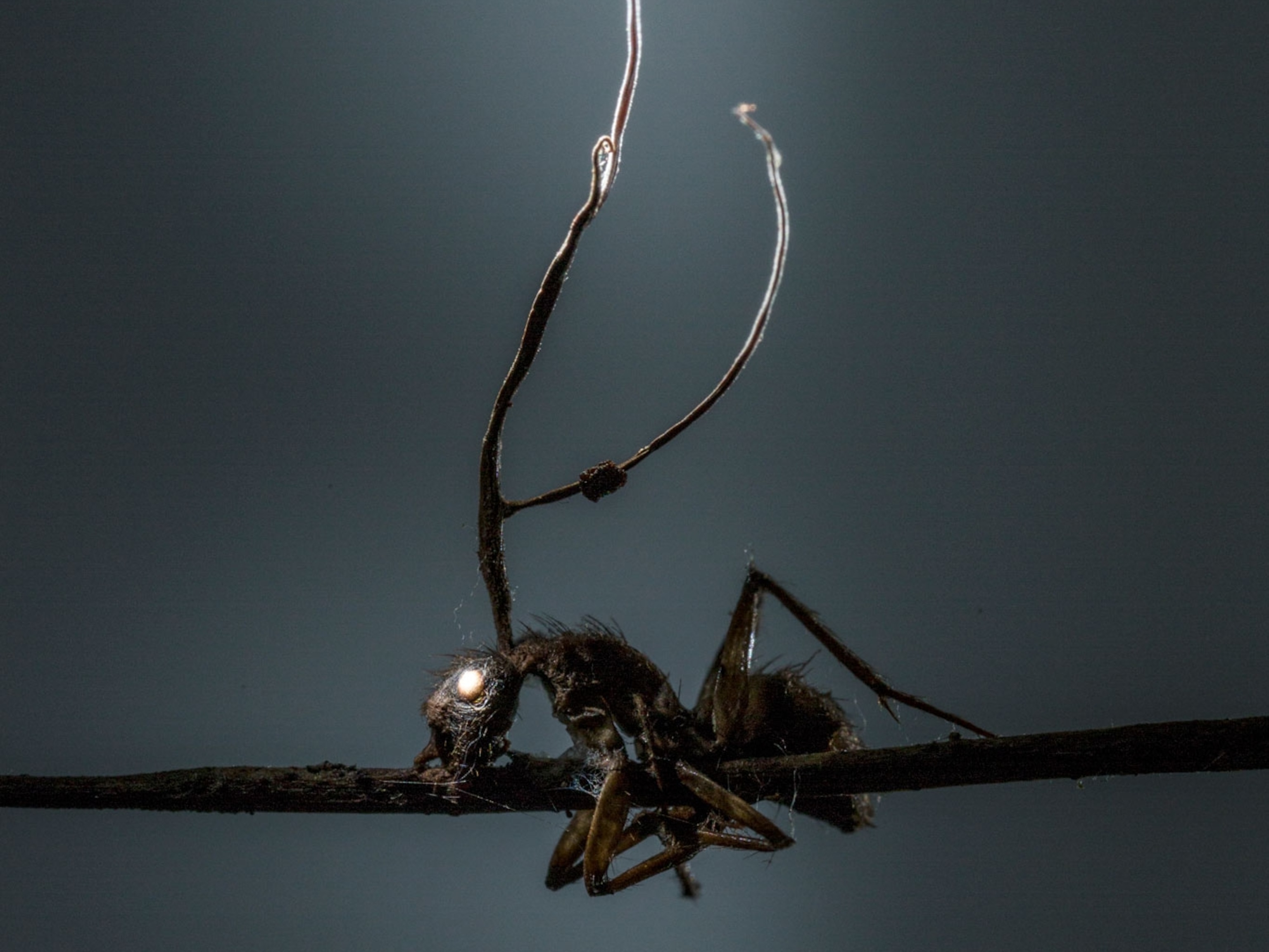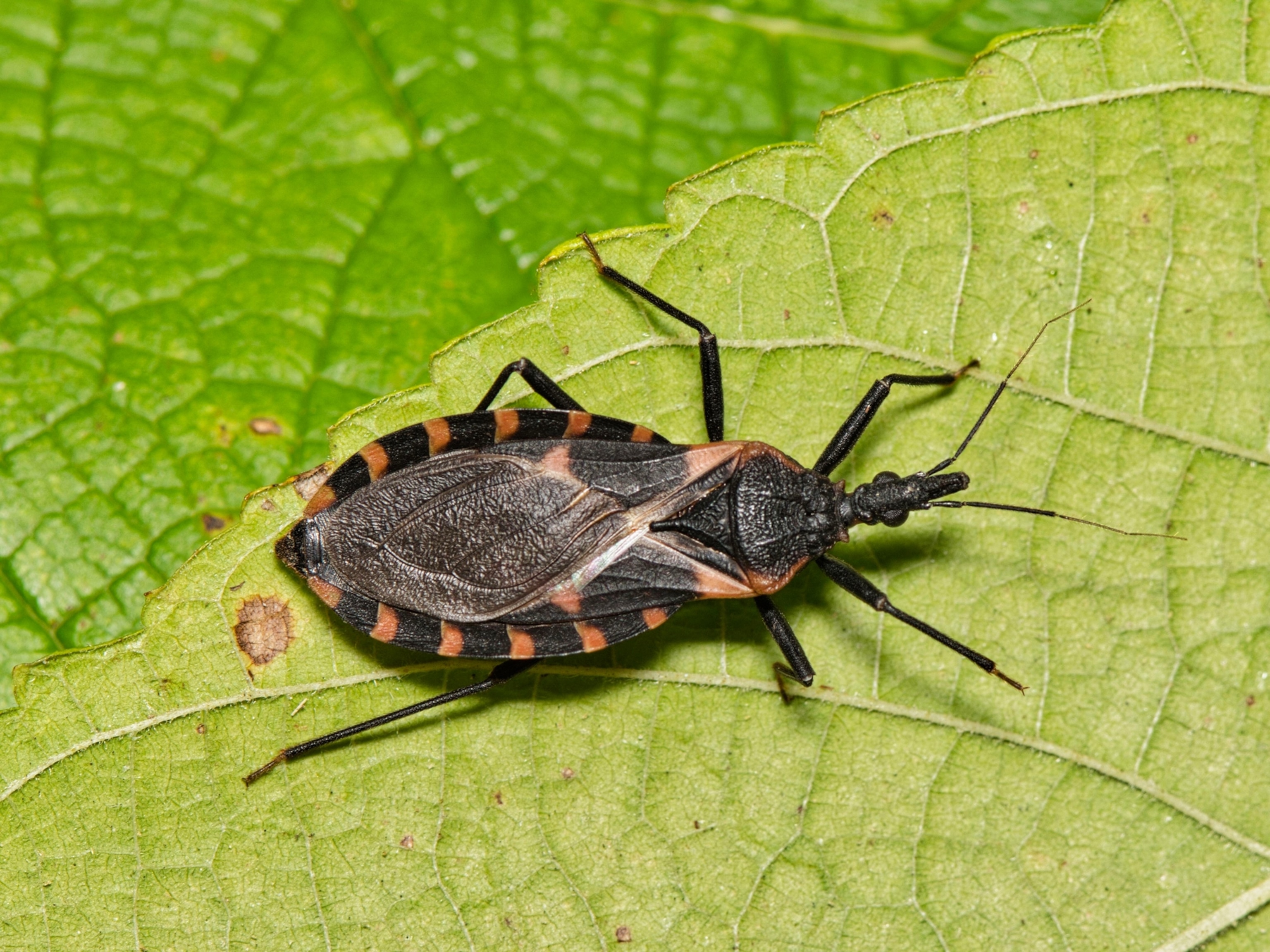
"Sex Puppeteers" Force Sex Change, Virgin Birth in Bugs via Genes
Fast-spreading parasites are forcing victims into sex changes, inducing virgin births, and turning animals into "gross monsters"—all via genetic sabotage, a new study finds.
Fast-spreading parasite species force sex changes on their victims, induce virgin births, and turn animals into "gross monsters"—among other horrors.
Now a new study has decoded how the bacteria may be able to wreak their havoc: by shutting down immune systems.
The parasites, of the Wolbachia bacteria genus, cause a gene in wasps to stifle the insect's protein-based "alarms" against the bacterial invaders, say researchers who mapped the genomes of three species of Nasonia wasp for the first time.
As a result, the wasps' antibacterial defenses are never deployed, allowing Wolbachia to begin their dirty work.
This mechanism may also be employed in the other insects and the mites, spiders, and nematode worms that Wolbachia meddle with. For all these creatures, the hosts' reproductive systems are revamped with freakish results—and an apparent anti-male agenda. (See "Butterfly Evolves Leg Up on Male-Killing Parasite.")
Males are transgendered into fertile females, or killed. Virgin females give birth—no fathers needed. The sperm of infected males is rendered useless in uninfected females.
(Related: "Suicide Grasshoppers Brainwashed by Parasite Worms.")
Males get the shaft because Wolbachia can live in eggs but not sperm—only infected females can pass on the bacteria to offspring.
"For the human world this would be science fiction, but in the insect world, it's very much a reality," said Seth Bordenstein, a professor of biology of Vanderbilt University in Tennessee. Bordenstein was part of the international consortium behind the new study, published in the January 15 issue of the journal Science.
"Gross Monsters"
All this Frankenstein-like fiddling has also given these sex puppeteers, as Bordenstein called them, an advantage among parasites: They can reproduce without killing their hosts, so the bacteria have a better chance of spreading to the hosts' next generation as the hosts themselves reproduce.
In fact, the bacteria have gotten so good at what they do that they're "one of the most successful parasites in the animal kingdom." Wolbachia lurk in about 70 percent of all arthropods, a group that includes spiders and mites, Bordenstein said.
"Anytime anyone has a fly that lands on rotten fruit or a fly crawling on their shoulder … it [likely] has this Wolbachia parasite."
Which isn't to say Wolbachia's handiwork is always spot-on. Sometimes the bacteria can't finish the job, resulting in "gross monsters"—part male, part female—Bordenstein said.
Bordenstein and colleagues don't know exactly how Wolbachia work their genetic sabotage. But they do know that the bacteria go a step further and actually transfer some of their own genes into the wasp's genome.
That process is still murky, but Bordenstein believes that, by infecting the reproductive systems of its hosts, Wolbachia increases the likelihood that its genes will be absorbed into those of the wasps.
(Related: "Malaria Parasites Use "Cloaking Devices" to Trick Body.")
Malaria Trickery
Wolbachia's success in spreading through hosts—and especially to hosts' offspring—may eventually help geneticists figure out how to combat human diseases carried by insects, such as malaria and dengue fever, Bordenstein said.
For instance, scientists have figured out how to add genes to mosquitoes that make the bugs resistant to bacteria that cause malaria. But researchers haven't figured out an effective way to spread malaria-fighting genes through an entire mosquito population.
If an antimalaria gene could be added to the Wolbachia genome, the parasites might become an "automatic drive mechanism," spreading the malaria-resistance gene from mosquito to mosquito.
Regardless of future applications, though, "from a basic scientific perspective," Bordenstein said, "it's truly fascinating how a simple organism like bacteria can control the sex lives" of a complex host.




